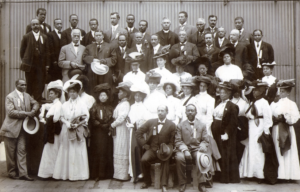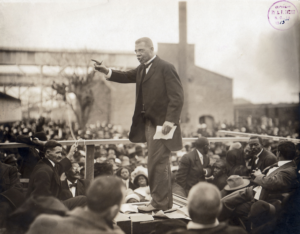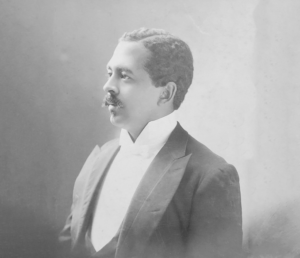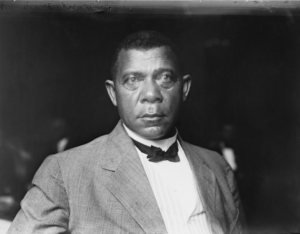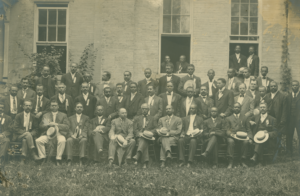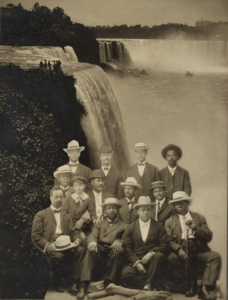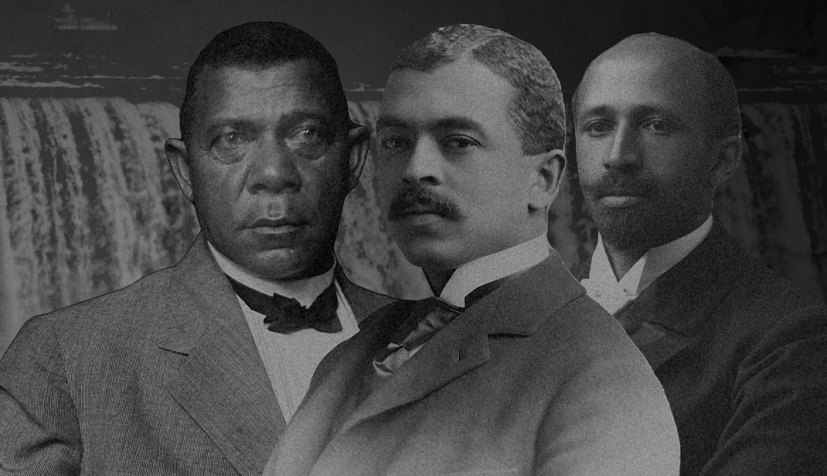Photos: Cheryl L. Duncan
Buffalo, N.Y. — The Niagara Movement: The Early Battle for Civil Rights, a powerful hour-long documentary by WNED PBS, delves deep into a national crusade that forged the civil rights landscape for the 20th century and beyond. The film explores the Black elite and intellectual society at the turn of the 20th century and examines the heated national debate and conflict three Black leaders — sociologist W.E.B Du Bois, publisher William Monroe Trotter and educator and orator Booker T. Washington — had about how best to foster equality and opportunity for Black Americans.
The film premieres on Monday, November 6, at 9 p.m. on WNED PBS and Buffalo Toronto Public Media’s
YouTube Channel.
The film, produced and directed by Emmy Award-winning and two-time Oscar-nominated filmmaker Lawrence R. Hott, spotlights the early battle behind the civil rights movement that sprang forth as a repudiation of the methods of Booker T. Washington, then the most prominent Black leader in America. The end of Reconstruction brought about oppressive Jim Crow laws and widespread lynching. Washington pandered to white society with his conciliatory philosophy of racial segregation and industrial training for Blacks instead of other advances.
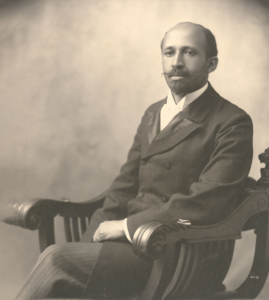
Washington’s position was roundly criticized by Du Bois and by Trotter, a prominent Boston newspaper publisher, and soon a new civil rights organization emerged: the Niagara Movement. The group was formed when Du Bois and Trotter helped summon Black intellectuals, clergy, writers, newspapermen and activists from across the country to Buffalo, New York; the 29 men ultimately met across the Niagara River in Fort Erie, Canada, to evade disruption by Washington’s supporters. The organization’s key demand: full civil rights for Black Americans.
Its Declaration of Principles, a sharp rebuke to Washington, stated, in part: “We refuse to allow the impression to remain that the Negro-American assents to inferiority, is submissive under oppression, and apologetic before insults.”
The film captures the far-reaching impact of the short-lived Movement — disbanded only four years after its inception — which laid the cornerstone of the modern American civil rights movement, eventually morphing into the NAACP.
“The influence of the Niagara Movement is evident in the protests and court challenges of the American civil rights movement as well as past and current activism,” said Tom Calderone, President & CEO of Buffalo Toronto Public Media. “We are pleased to present this important film about such a prevailing influence on our society.”
The Niagara Movement will be distributed by American Public Television in February 2024 to public television stations across the country (check local listings). The film will be available on the PBS app in February 2024.
Visit
www.theniagaramovement.org for more information, educational resources and bonus materials. Follow WNED PBS on X (formerly known as Twitter), Facebook, and Instagram (@wnedpbs).
Major funding for The Niagara Movement: The Early Battle for Civil Rights was provided by The John R. Oishei Foundation, with additional funding from the Corporation for Public Broadcasting, Community Foundation of Tampa Bay Inc. – In Memory of Susan Howarth and Visit Buffalo Niagara.
About Buffalo Toronto Public Media:
Buffalo Toronto Public Media engages with our communities through exploration and entertainment — everywhere. Our member-supported services include WNED PBS, WBFO (NPR) (88.7 in Buffalo, 91.3 in Olean, 88.1 in Jamestown), WNED Classical (94.5 in Buffalo, 89.7 WNJA in Jamestown), WBFO The Bridge (88.7 HD2 and 94.5 HD2 in Buffalo), WNED Create and WNED PBS KIDS. WNED PBS is also a national producer of award-winning documentaries. Additional information about Buffalo Toronto Public Media can be found at wned.org.
